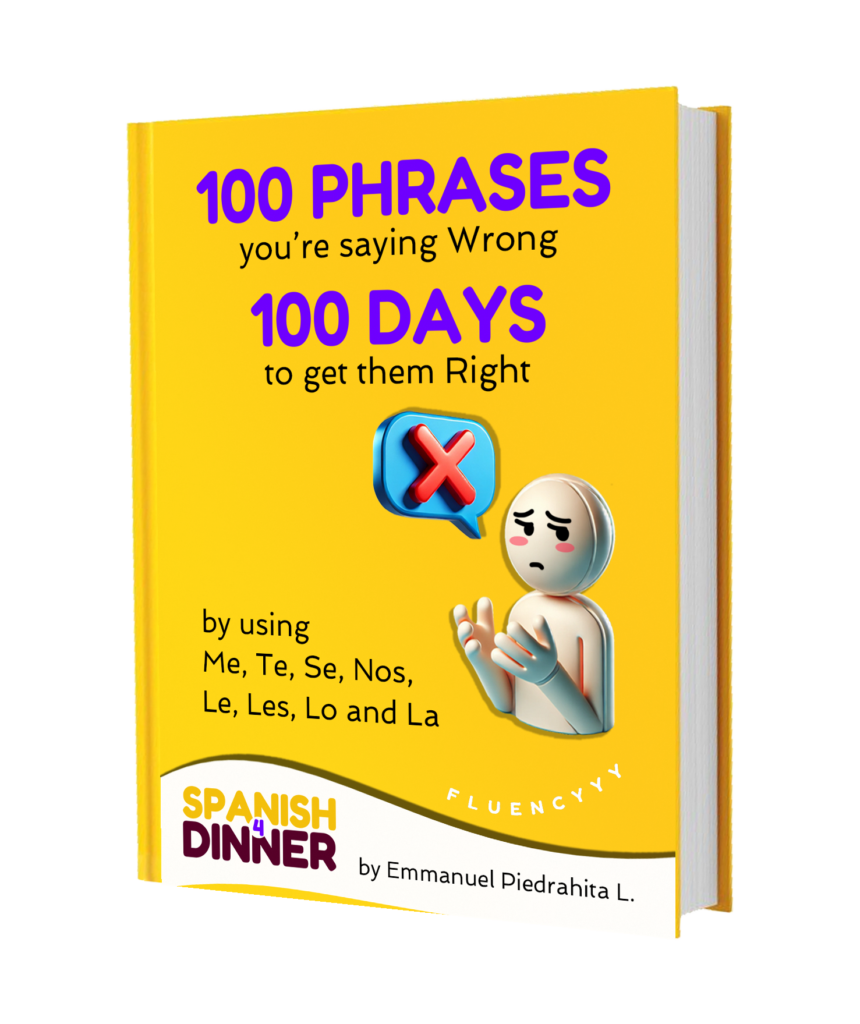How to use the preposition ‘a’ in indirect object sentences
In this blog, you’ll learn:
🟢 How to know when to use the preposition ‘a’ and when to leave it out in sentences using indirect objects.
🔹Yo amo a mi caballo Jessy. → I love my horse Jessy.
🔹Yo amo la naturaleza. → I love nature.
🔹Yo amo comer. → I love eating.
🔹Yo te amo a ti. → I love you.
In these kinds of sentences (indirect object sentences), you’re expressing an action directed toward something or someone — in this case: your horse, nature, eating, and “you,” respectively.
When should you use the preposition ‘a’?

Use the preposition a if
referring to things that are both alive and personally significant to you


Do not use the preposition a if
referring to inanimate objects or referring to verbs (infinitive actions)

Example 1
How to say “I love my pets” in Spanish?
Yo amo a mis mascotas | I love my pets
Mis mascotas can be considered both personal and alive at the same time. This is why you have to use the preposition a before mis mascotas.
Example 2
How to say “I love that mountain” in Spanish?
Yo amo esa montaña | I love that moutain
A mountain may be considered alive, but it’s not personal to you the way a pet is—at least not in a typical context. That’s why you wouldn’t use the preposition a before esa montaña.
⭐Quiz 1
What is the correct way of saying “I love my family”?


Still stuck in translator mode when speaking Spanish? Time to upgrade!
Our brand new course is here to help you use pronouns like me, te, nos, le, les, lo, and la with confidence — and sound way more fluent.
More examples
1. My sister loves her horses.
Mi hermana ama a sus caballos.
2. I love nature.
Yo amo la naturaleza.
3. Mom loves plants.
Mi mamá ama las plantas.
4. I love eating crackers.
Yo amo comer galletas.
5. They love my brother.
Ellos aman a mi hermano.
6. You love working from home.
Tú amas trabajar desde casa.
7. I love my kids.
Yo amo a mis hijos.
8. I love my job.
Yo amo mi trabajo.

This rule isn’t 100% strict when it comes to living beings
- Sometimes, it depends on personal perspective.
- Depends on how colloquially someone is speaking.
- There isn’t always a solid reason to choose one form over the other.
Referring back to example 2: “I love nature”, you might hear both:
✅ “Yo amo la naturaleza” and
✅ “Yo amo a la naturaleza”

🎯 Want to use Spanish object pronouns like a true native speaker?
At Spanish4dinner, we’ve got you covered when it comes to mastering Spanish pronouns.

Grab your free 100 phrases you’re saying wrong 100 days to get them right eBook and start building a habit that will make your Spanish sound more natural—just like a local!